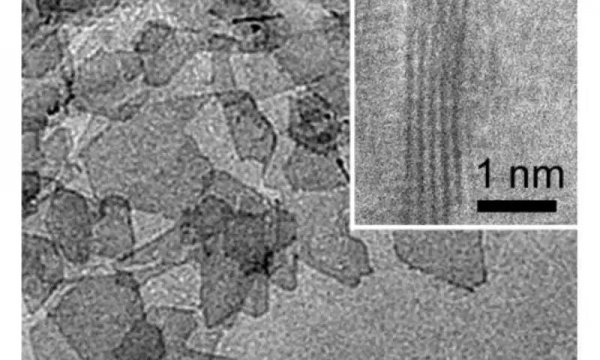According to an article published in Science magazine, the latest research from Johns Hopkins University found that a new reactive method to increase ultra-thin nanosheets (a few atoms thick) is expected to make fuel cells cheaper.
A typical case of optimized reaction applications is to increase the activity of catalysts for fuel cell vehicles. Although fuel cell technology represents a promising technology for emission-free electric vehicles, the amount and cost of precious metal catalysts (such as platinum and palladium) have been restricting the large-scale use of fuel cells, and making fuel cell catalyst reactions more active is expected. Reduce costs and further remove obstacles for the large-scale use of fuel cell vehicles.

Only five atomic layers of platinum-based metals "exactly" used to optimize the performance of fuel cell electrodes
Wang Chao and colleagues estimate that their new method can increase the catalyst activity by 10-20 times and reduce the amount of precious metals required by current fuel cells by 90%.
"Due to the destruction of crystal symmetry at the atomic level, every material experiences surface strain. We discovered a way to make these crystals ultra-thin, which reduces the distance between atoms and increases the reactivity of the material. "Wang Chao, assistant professor of chemical and biomolecular engineering at Johns Hopkins University, said.
In short, strain is the deformation of any material. For example, when a piece of paper bends, it is effectively destroyed at the smallest atomic level, and the intricate grids that hold the paper together change forever.
In this study, the R & D team manipulated the strain effect or the distance between the atoms, causing significant changes in the material. By making these lattices a million times thinner than humans, the corresponding material becomes easier to handle, just like a piece of paper is easier to bend than a pile of thick paper.
"We use force to adjust the properties of the thin metal plate that constitutes the electrocatalyst, which is part of the fuel electrode of the battery." Jeffrey Greeley, professor of chemical engineering at Purdue University and another author of the paper, explained: "The ultimate goal Is to test the feasibility of this method on various metals. "
"By adjusting the thickness of the material, we can generate more strain, thereby changing the material properties, including how the molecules are combined, which means that the reaction on the surface of the material can be accelerated more freely." Wang Chao said: "Hopefully our research The result will one day help produce cheaper and more efficient fuel cells, making it easier for everyone to use environmentally friendly vehicles. "
Floor Mounted Tub Filler with Hand Shower with 360 Degree Swivel.The hoses come with a nylon-braided exterior that protects against chemical corrosion (commonly caused by detergent) and rusting. Easy operation single handle design allows flow rate and temperature control in single hand. Handheld Shower head and high arch 360 degree swivel bath tub faucet change in one second through diverting valve knob.
Freestanding Bathtub Faucet,Bathroom Tub Faucets,Freestanding Bath Taps,Freestanding Bathtub Faucets
HESHAN CAIZUN SANITRAYWARE CO.,LTD , https://www.nbcaizunsanitaryware.com